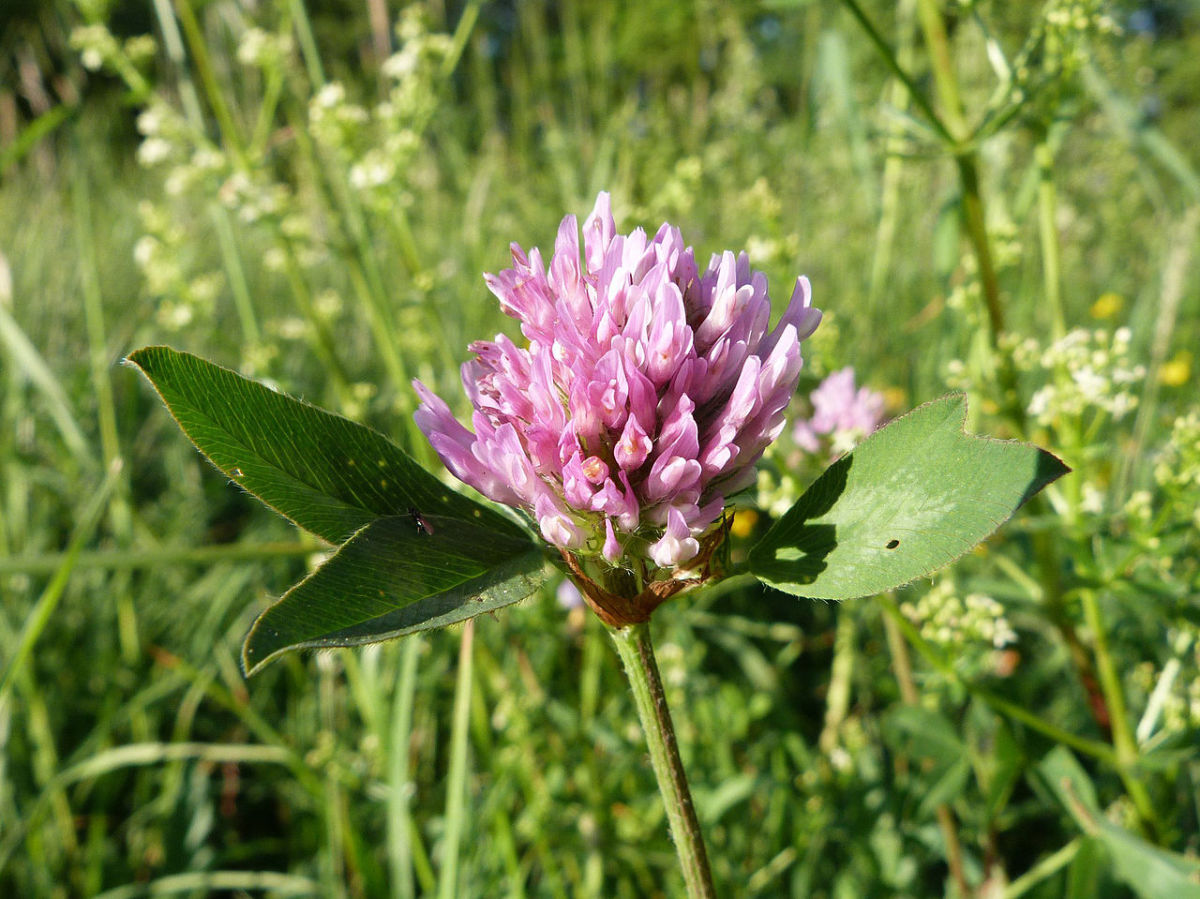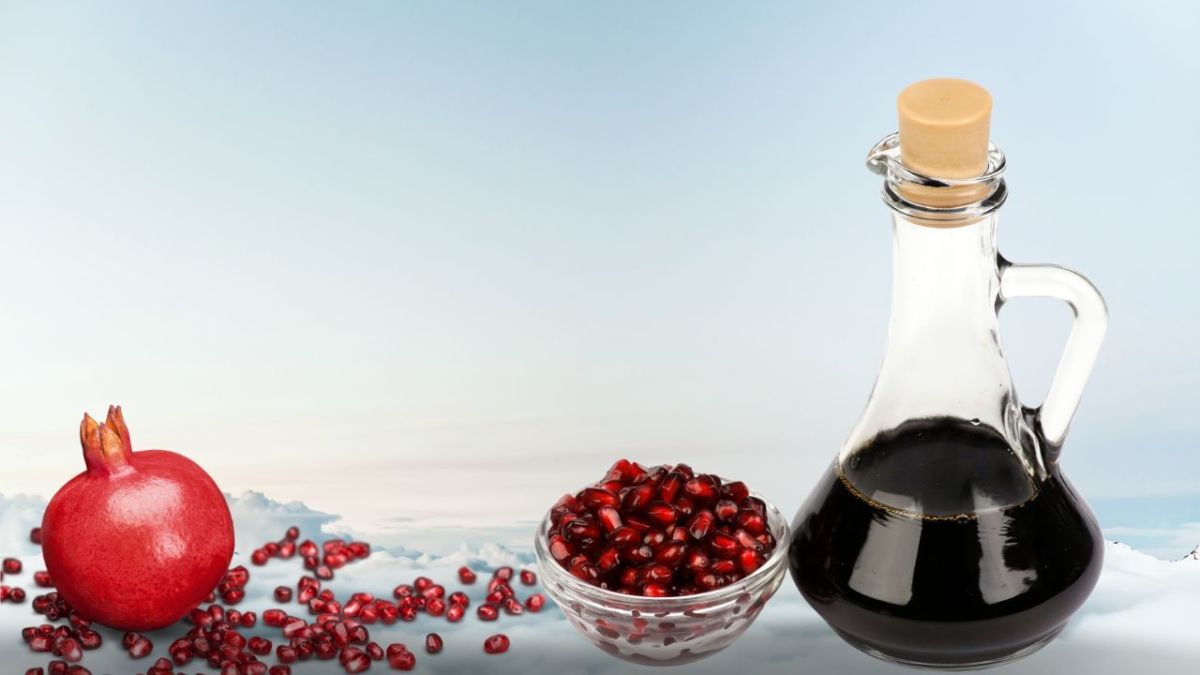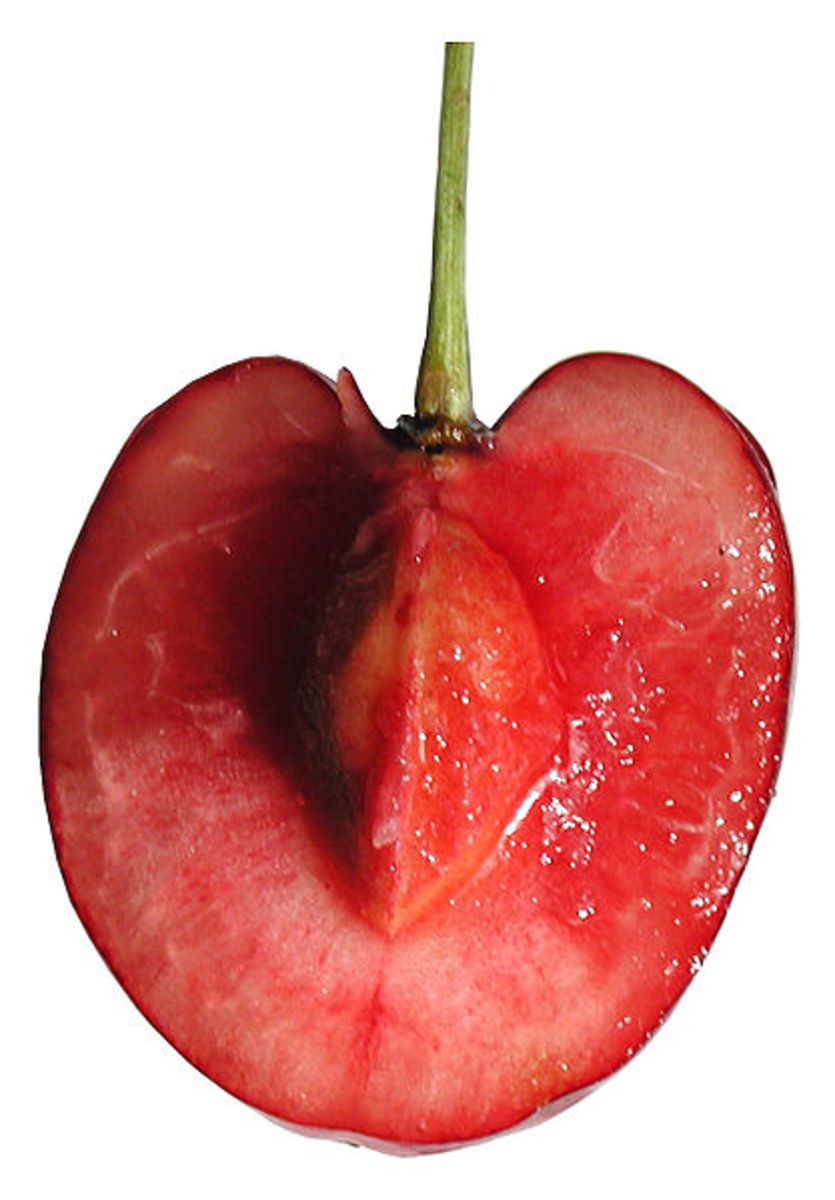What Are the Benefits of Red Clover?
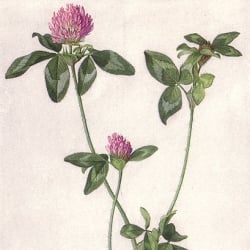
Red Clover Benefits People, Animals, Soil
Red clover is a common plant, and familiar to many of us, with its showy dark pink flowers and attractive broad trifoliate (3 leaflets) leaves.
Red clover is grown mostly for agricultural purposes, but it's also one of the common herbal remedies used to promote womens health(menstruation, fertility, menopause) and a variety of other health problems, from asthma and bronchitis to cancer (red clover is one of the herbs in the 8-herb version of Essiac tea).
The botanical name for red clover is Trifolium pratense. Trifolium comes from the Latin "tri" or "3", and "folium" is "leaf" (think of "foliage"). Pratense is Latin, meaning "found in meadows". Red clover is found growing mostly in fields and meadows. It's native to Europe and parts of Asia and Africa, but as with many common, hardy plants, it has spread to North America as well.
We have a small patch of Red Clover growing along our driveway that I thought the previous owners had planted as an ornamental clover -- it's lovely when in bloom and can be added as a nice accent to garden areas. But it's more likely that our little patch was self-planted (a volunteer!), although I welcome it in our yard.
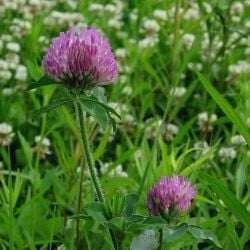
Red Clover -- Healing Herb
Health Benefits of Red Clover
Although mostly grown for its agricultural uses, my interest is in the health benefits of red clover as a nutritious, healing herb.
Red clover has many nutrients, including the minerals calcium, chromium, magnesium, and potassium, and vitamins such as niacin, thiamine and vitamin C. It's also high in isoflavones. Isoflavones are water soluble chemicals that act like estrogens and are found in plants of the legume (bean) family, including soy beans. Because of its isoflavones, red clover is often used for women's health issues concerning fertility and the menstrual cycle, and menopausal symptoms.
Another major health benefit of using red clover is that it may prevent or slow down heart disease. A few studies (not definitive yet) show that taking red clover may lower the levels of "bad" cholesterol and raise the levels of "good" cholesterol. It may increase the production of bile. More bile production usually means that more cholesterol is used; therefore less cholesterol circulates throughout the body. Also red clover contains small amounts of coumarin, a blood thinner, which reduces plaque build-up in the blood vessels. Red clover may help to keep arteries strong and flexible which also contributes to the health of the heart and circulatory system.
Other health benefits of red clover:
- May limit the growth of prostate cancer in men, and has been shown to limit non-cancerous enlargement of the prostate.
- Helps people to stop smoking.
- Improves urine production
- Eases coughs and respiratory conditions.
- Stimulates the immune system; good as an overall tonic
- May fight some cancers (is an ingredient in the 8-herb version of Essiac tea, known for its cancer-fighting properties)
- Clears up skin problems
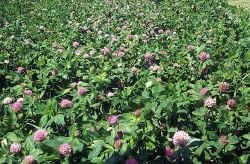
Agricultural Uses For Red Clover
The two main uses of red clover are as food for livestock, and as a cover crop that makes soil more fertile.
There are records that indicate that red clover was cultivated in Europe in the 3rd and 4th centuries. It was brought to the temperate regions of North America by early settlers as an excellent source of food for livestock, being high in protein and other nutrients. It's often grown mixed in with grasses, and the combination is used for hay, silage and grazing.
Red clover is sometimes called a green manure -- a natural fertilizer. "Green manure" refers to a cover crop that's grown and then plowed into the soil to add nutrients and organic matter, improving the soil for other crops. Red clover adds nitrogen to the soil in a form that can be used by other crops.
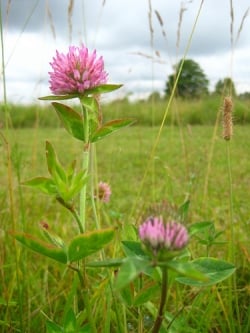
Red Clover for Women's Health
Menstrual, fertility, and menopause health
Red clover may be beneficial during many stages of a woman's life, due to its estrogen-mimicking compounds.
I mentioned earlier that red clover contains isoflavones, which act as phytoestrogens in mammals. Phytoestrogens are compounds that mimic estrogen and can be used to regulate estrogen levels.
The isoflavones in red clover are thought to displace some natural estrogens in the body, which may ease estrogen-related PMS (pre-menstrual syndrome) symptoms including breast pain and swelling.
It's this same effect that may help with endometriosis and reduce the possibility of developing estrogen-related cancers (such as cancer of the endometrium) A review of nearly 1000 women suggests that red clover may interfere with an enzyme that promotes the progression of endometrial cancer (note: I found the previous statement a number of times online, but couldn't find the original source).
Red clover promotes milk production in lactating women.
The use of red clover may reduce hot flashes and other symptoms in perimenopausal and menopausal women, and may slow bone loss or even increase bone density in pre- and perimenopausal women. (Unfortunately, this benefit hasn't been seen in men or in post-menopausal women.)
There is some controversy whether or not pregnant women should take red clover because of its estrogenic effects. The same is true for women who have had breast cancer. It may be best to avoid red clover until more studies are done to determine whether it's helpful or harmful in these situations.

Red Clover Supplements - Easy ways to get the benefits of red clover
Taking red clover herbal supplements is an easy way to get the benefits of this healthful herb if you don't want to go out and harvest it yourself. Try in an extract form, in capsules, or as the dried plant for tea.
Health food stores will often carry these supplements. You can also buy them online through Amazon or a natural foods store.
I prefer the liquid extract such as Nature's Answer Red Clover Flowering Tops, shown right.
Red Clover Harvest
Herbalist Susun Weed of the Wise Woman Tradition talks about Red Clover. This video shows a large tray of drying red clover flowers.
Red Clover Infusion
Herbalist Susun Weed makes a nutritious red clover herbal infusion, and tells about the health benefits of red clover.
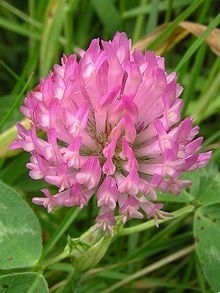
Edible Red Clover Flowers
The red clover flowers are edible and slightly sweet. Did you ever, as a kid (or even recently!), pluck off the red clover florets and suck out the nectar? You can pull out the individual florets and add them to summer salads or to iced tea. One suggestion is to serve mint iced tea with a slice of lemon and a few red clover florets floating on top -- a refreshing, elegant tea!
Honey bees like the sweetness of red clover flowers too. It's one of the more common types of honey.
Raw clover honey (unpasteurized) has more health benefits than the pasteurized honey that's sold in regular grocery stores. It's a natural anti-microbial and antioxidant, and contains more nutrients than pasteurized honey.

Red Clover Honey
Honey bees love red clover!
You can buy regular pasteurized clover honey (heated) in any grocery store. But the best honey is raw, unpasteurized honey. You can often find it at your local natural foods or health foods stores, or at the farmers' market.
Raw honey has anti-viral, anti-bacterial, and anti-fungal properties, and also has many nutrients. It retains pollen impurities, and may help to reduce hay fever symptoms. My son has tested it himself, and he feels his spring allergies are much less severe after eating raw red clover honey over the winter.
You can also buy clover honey online, such as the White Gold Honey shown here. White Gold Honey is raw and unpasteurized. It's also spreadable.
Red Clover Tea is Also Good
![Alvita Tea Bags, Red Clover, Caffeine Free, 30 tea bags [1.125 oz (32 g)] (Pack of 3)](https://m.media-amazon.com/images/I/51w0DKOJ61L._SL500_.jpg)
If You Want to Read More About Red Clover
Here are the major sources I used to write this.
- Red clover Benefits & Information
Overview of Red clover Benefits & Information. Important for women's health and for men's health. - HowStuffWorks "Red Clover: Herbal Remedies"
Red clover can be used as an herbal remedy to treat the immune system and congestion. Learn about this herb and how to make red clover herbal tea. - Red clover: University of Maryland Medical Center/Complementary Medicine
Red clover has many nutrients, and has been used medicinally for many ailments. - How to Make Red Clover Tea | eHow.com
How to Make Red Clover Tea. Red clover blossoms can easily be used fresh or dried to make herbal tea. Red clover tea has traditionally been drunk to treat the following ailments: breathing problems, problems of the female... - Trifolium pratense - Wikipedia, the free encyclopedia
Trifolium pratense is the Latin name for red clover. Red clover is wide spread and used for fodder, to enrich soil, and for it's medicinal properties. - Red Clover in the Twenty-First Century
Red clover (Trifolium pratense L.) is one of the leading forage legumes in the U.S., Canada, and northern and eastern Europe. - Red Clover May Be Best Alternative Therapy for Treating Enlarged Prostate
Urologist reviews published studies of five popular herbs and reports that isoflavones relieve symptoms of BPH.


